Blizzard Entertainment Now Requires World of Warcraft Players To Sign Anti-Harassment “Social Contract” Before Logging In
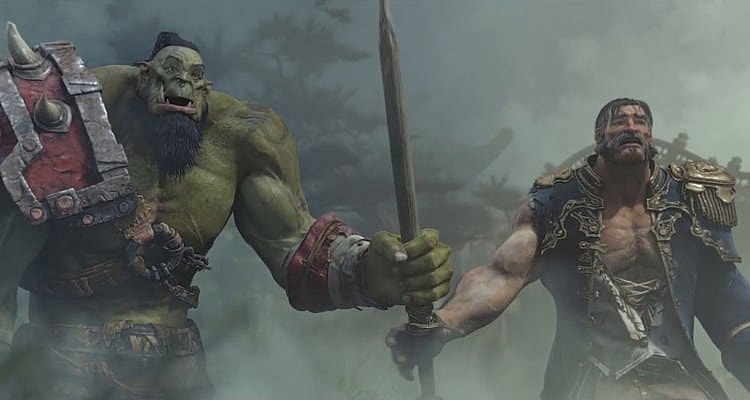
In their latest effort to try and rehabilitate their public image, Blizzard Entertainment has introduced a new anti-harassment “Social Contract” which World of Warcraft players must agree to before logging into the game.
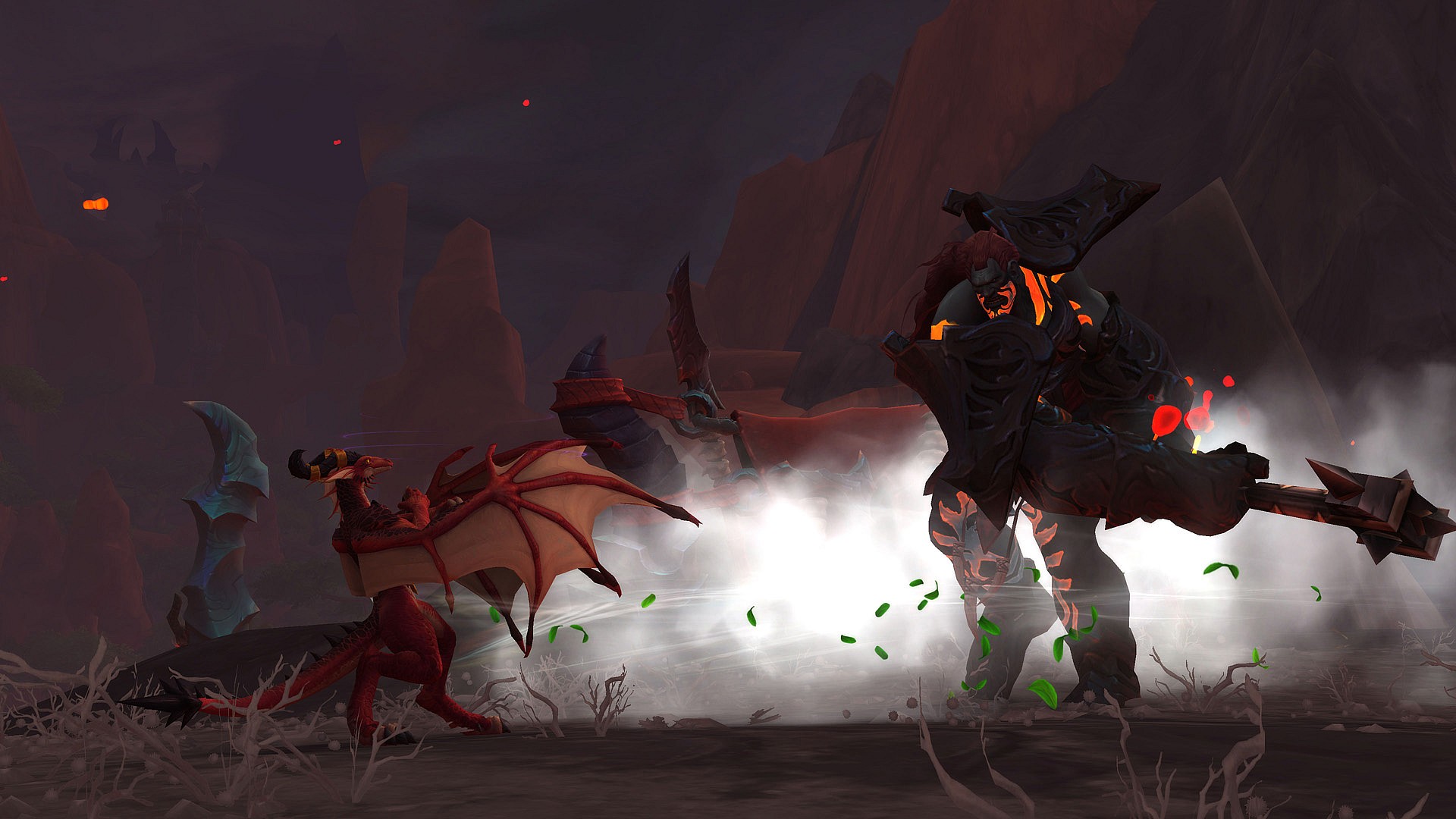
RELATED: Activision Blizzard Blames Lackluster Call of Duty: Vanguard Sales On World War II Setting
As reported by 80Lv, players are presented with the agreement upon their first log-in to the game following the May 31st rollout of its 9.2.5 patch.
“Hail, traveler, and welcome to the World of Warcraft,” the contract opens, as seen in the below screenshot shared by YouTuber MrGM. “Azeroth is a living world full of people like you – other players with different backgrounds, cultures, experiences, and histories who have all come together to play World of Warcraft. Every player deserves to have a world that they feel safe in, so please take a minute to read our Social Contract.”
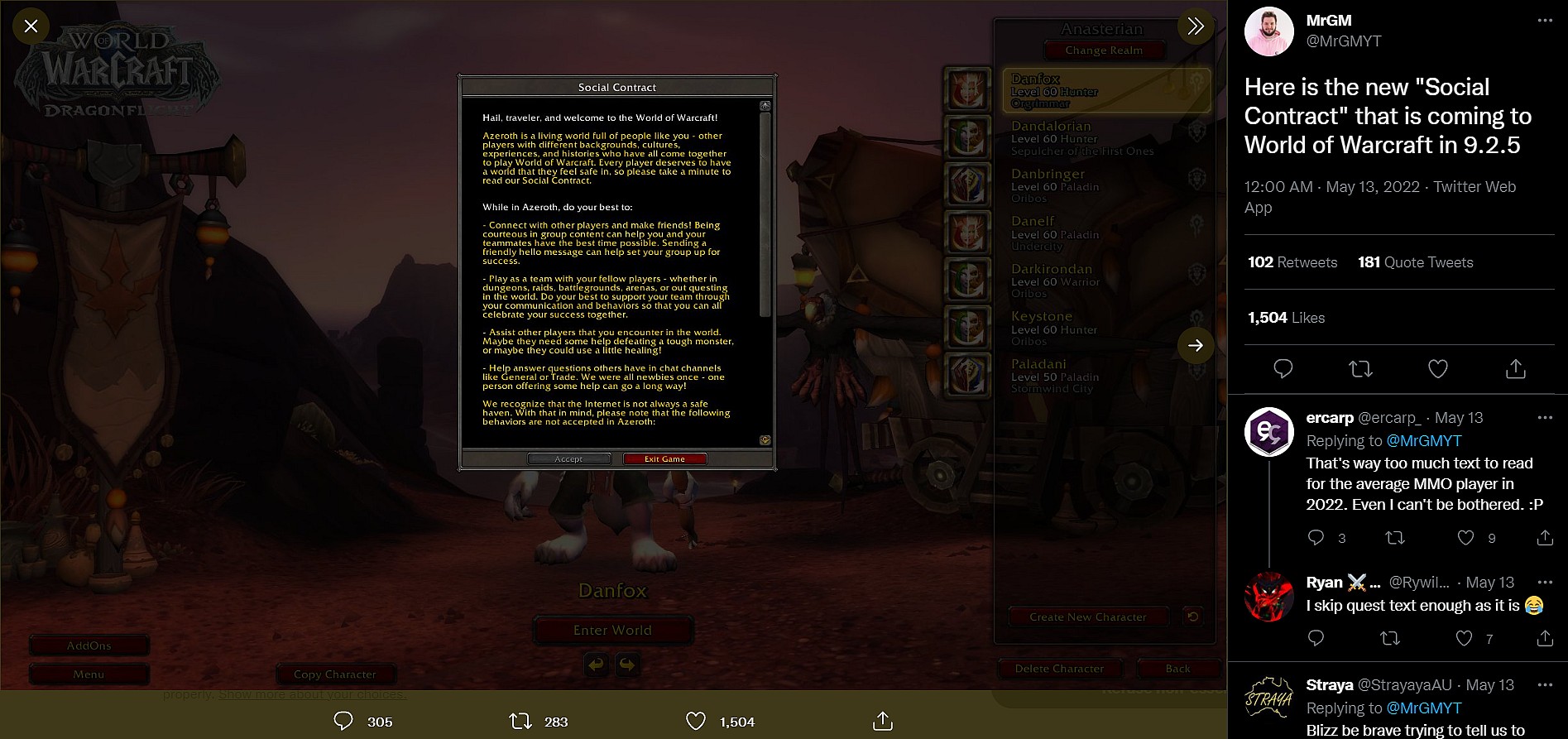
In addition to encouraging players to “make friends!”, “play as a team”, “assist others”, and “help answer questions other have in chat channels,” the contact also warns players against engaging in a number of behaviors which the developer has deemed unacceptable.
“We recognize that the Internet is not always a safe haven,” Blizzard Entertainment admits in the agreement, before detailing which actions “are not accepted in Azeroth.”
According to the developer, prohibited behavior includes “Hate speech, including negative comments that target another player’s identity, including aspects like race, gender, or ability,” “Harassment, threats, or abusive / derogatory language and behaviors,” and “Spamming, advertising, or other disruptive behaviors”.
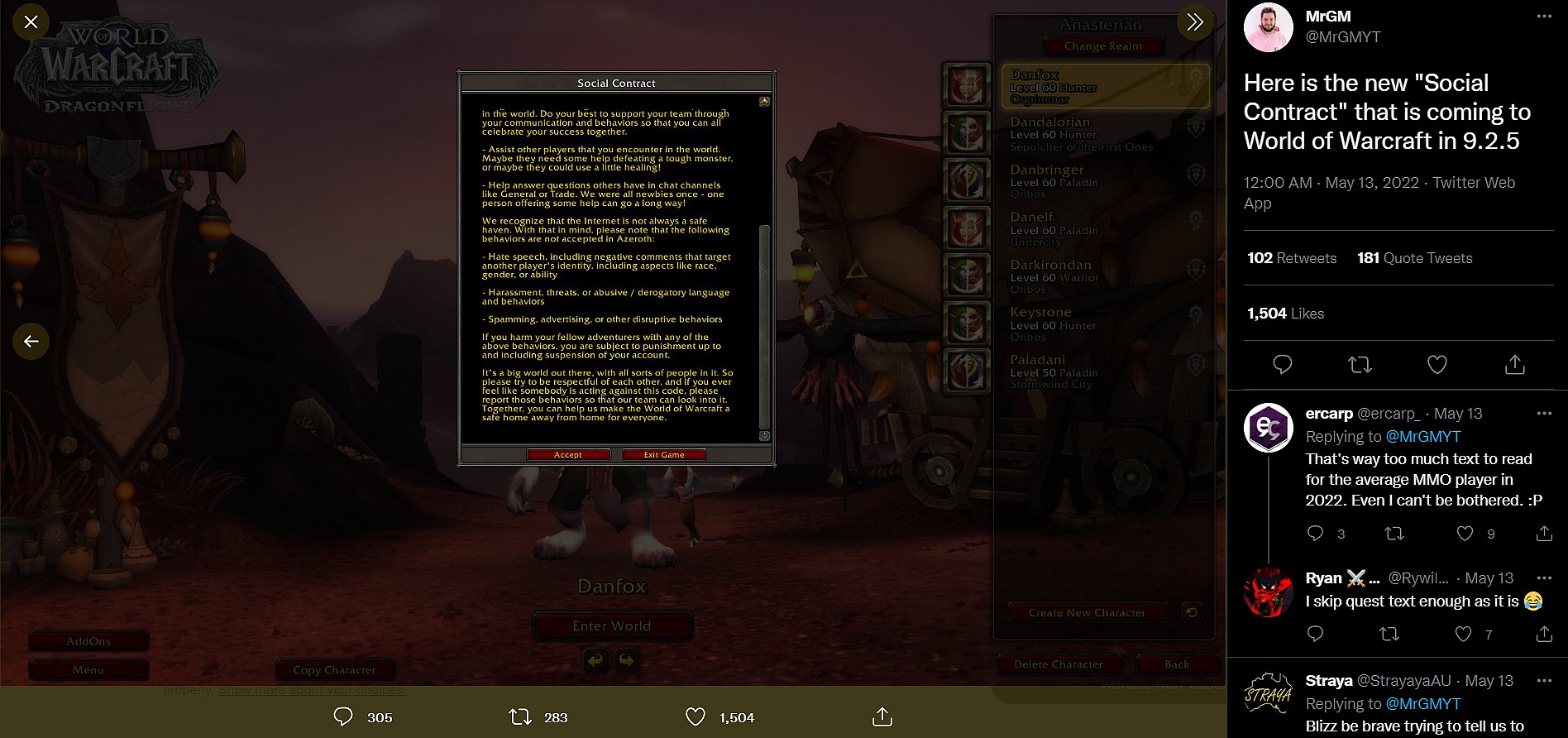
“If you harm your fellow adventurers with any of the above behaviors,” the contract explains, “you are subject to punishment up to and including suspension of your account. It’s a big world out there, with all sorts of people in it.”
“So please try to be respectful of each other, and if you ever feel like somebody is acting against this code, please report those behaviors so that our team can look into it,” it adds. “Together, you can help us make the World of Warcraft a safe home away from home for everyone.”
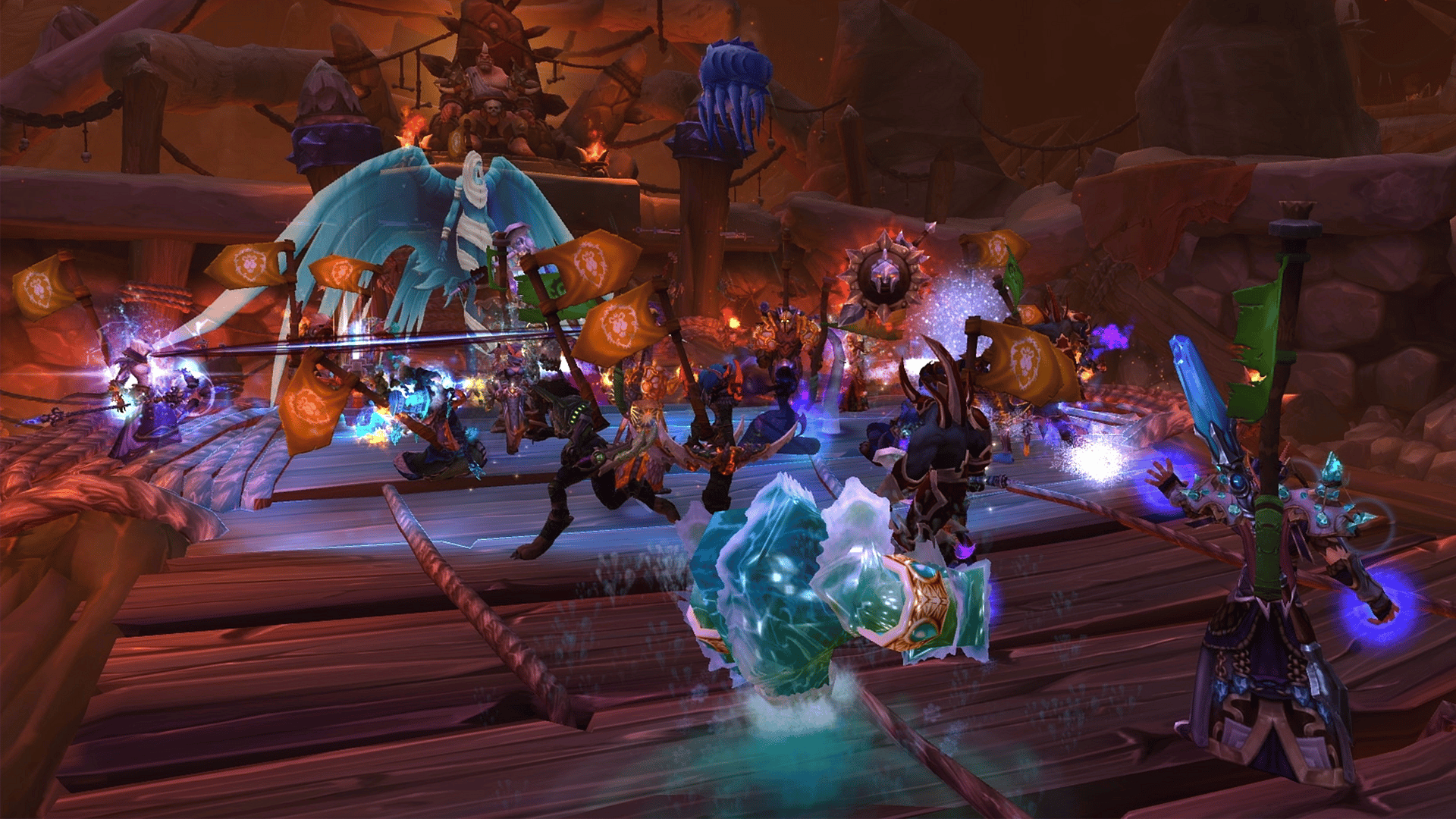
In an official blog post published roughly a month-and-a-half prior to the release of patch 9.2.5, Blizzard Entertainment had assured players that “creating a positive experience in World of Warcraft is important to the entire team. As a part of helping drive that focus, we’ve pulled together a multi-disciplinary team to look at varying aspects of what we can do to help make things better.”
“The 9.1.5 content update allowed us to provide additional updates to our reporting system that enable more visibility to player reporting by sending thank you messages to players who reported others for violating our code of conduct,” they said. “Additionally, most players who are close to being actioned within the game are now receiving a warning message.”

Blizzard Entertainment continued, “This is only the start of what we have in store, and the 9.2.5 content update provides some further improvements to the system.”
“When players first log in to World of Warcraft after the 9.2.5 content update goes live, they will be greeted by the new Social Contract,” they then announced. “This contract will need to be read and accepted before a player can continue into the world of Azeroth. The contract outlines behavior that will help make your experiences more positive and provides an outline of behaviors that are not acceptable within the game.”
“While you should only need to accept it once,” the developer admitted, “there may be a future point where you’ll need to reaccept the contract to continue playing.”

While the Contract doesn’t seem to go beyond a typical ‘terms of service’ agreement, it’s clear that its introduction is part of an attempt by the company to regain trust with players amidst a number of recent and self-inflicted controversies.
In July of last year, The California Department of Fair Employment and Housing filed a lawsuit against Activision Blizzard on behalf of ten female employees accusing the company of sexual harassment, sexual discrimination, and fostering a “frat boy workplace culture.”
One of the most shocking allegations leveled against the company included the claim that “a female employee committed suicide during a business trip with a male supervisor who had brought butt plugs and lubricant with him on the trip.”
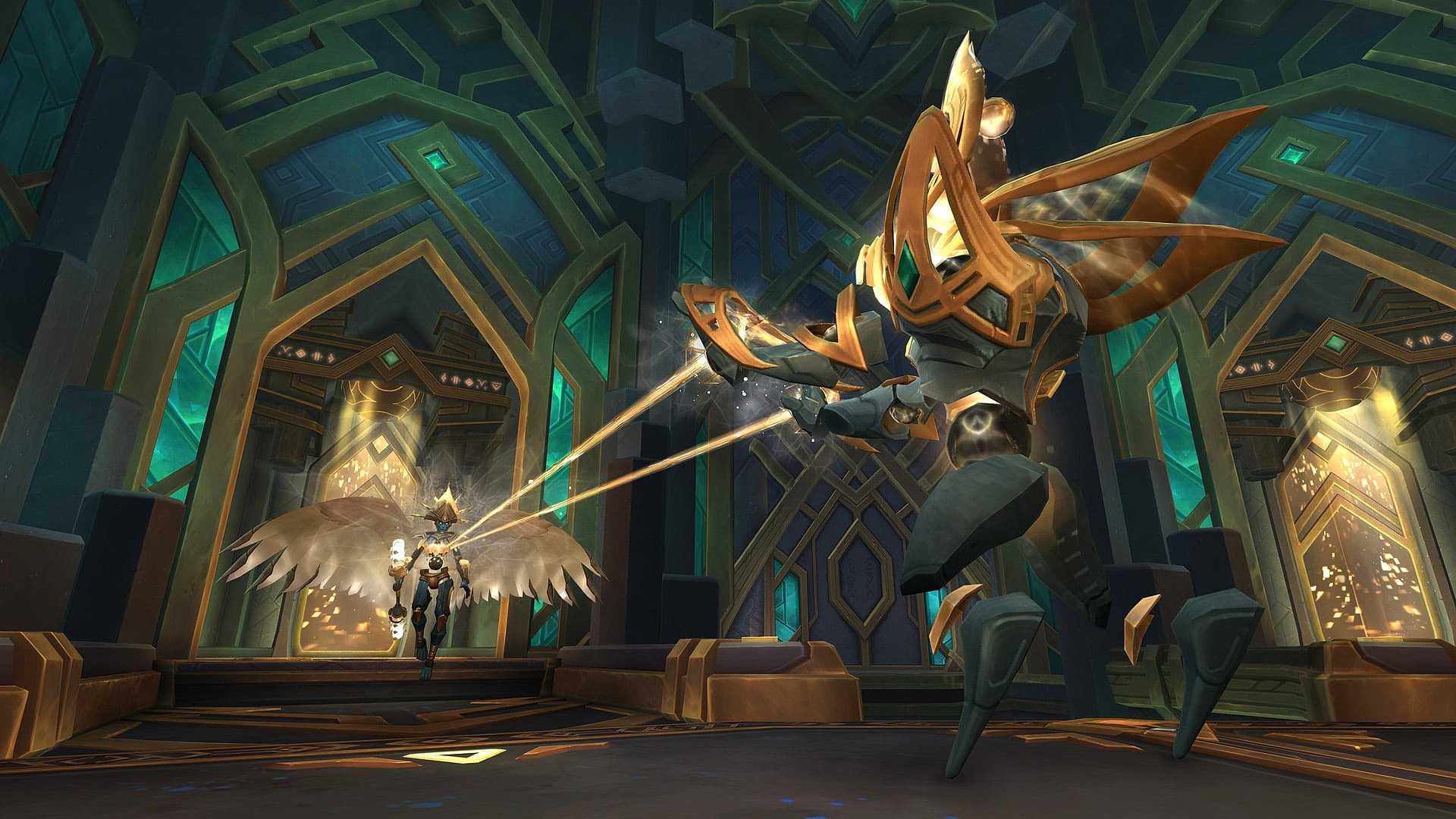
Since then it has been a wild ride of events, including staff walkouts, resignations, and further accusations of document shredding, CEO Bobby Kotick having prior knowledge of the numerous claims made against employees, and breast milk being stolen out of communal frides.
Activision Blizzard has also, as noted above, been desperate to clean up its image. To this end, they’ve taken such steps as purging all references to accused developers from Overwatch and World of Warcraft, as well as removing all “sexualized paintings” and inappropriate jokes from the later in order to make it more “inclusive“.
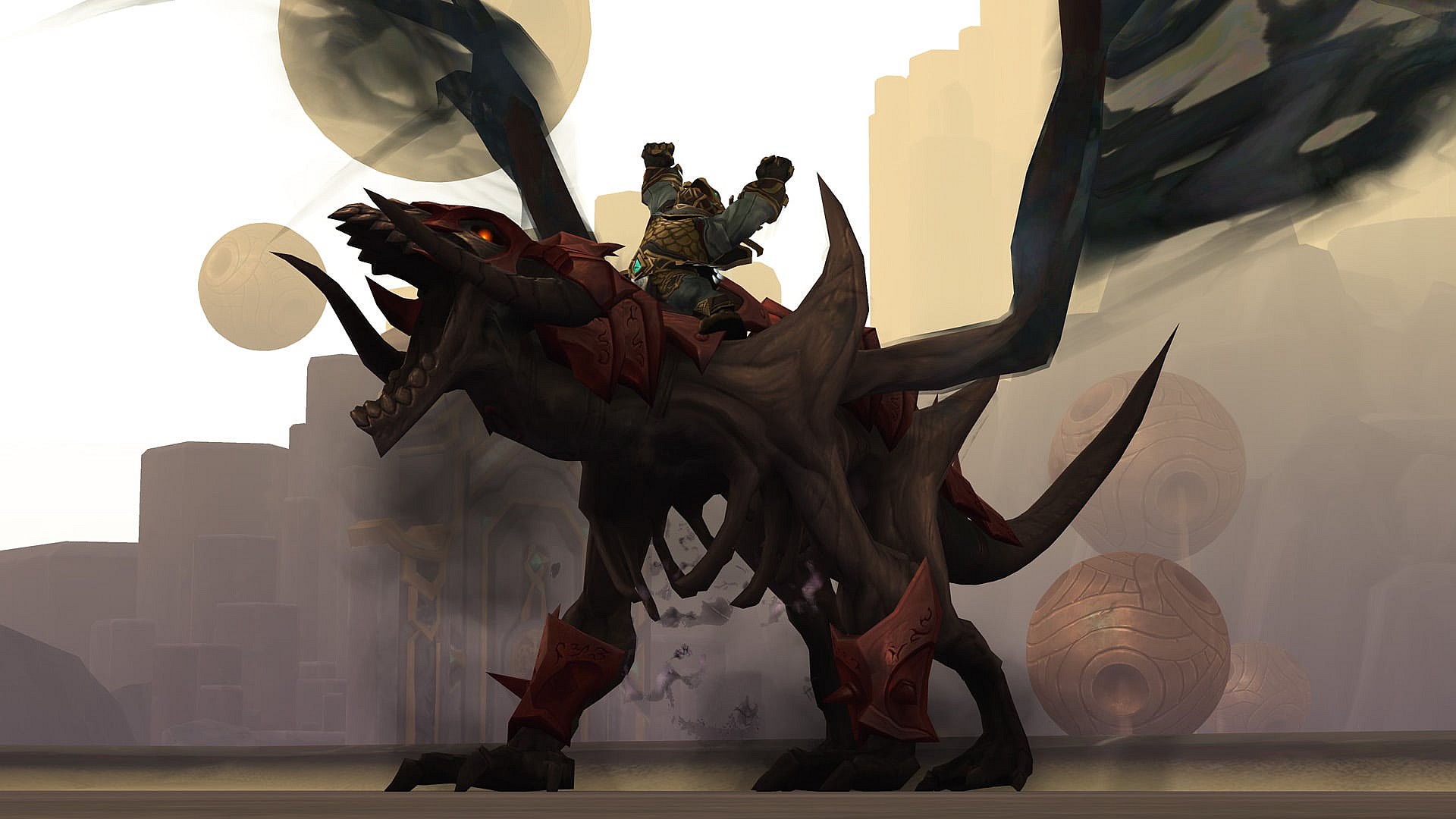
Kotick has also since announced several policy changes, including a ramping up of diverse hiring initiatives and better pay transparency.
Meanwhile, the company’s newly minted Chief DEI officer, Kristen Hines, has promised to “partner across all [of the company’s] gaming teams to ensure diverse and inclusive perspectives are included in game design, including storylines, character development, gameplay and community interaction.”

The most baffling effort of all, however, was Activision Blizzard’s proud reveal of their “Diversity Space Tool“, a quantative tool which assigns characters a number metric based on which diversity boxes they check.
Undoubtedly something they were sure would have been an easy PR victory, the tool’s unveiling was met with practically universal denouncement, with many criticizing how it was short-sighted and racist to judge which traits qualified as more diverse than another.
In response, Activsion Blizzard quickly clarified that the tool was “not being used in active development” – despite previous claims from the company that it had been tested by the Call of Duty: Vanguard and Overwatch 2 teams.

What do you make of World of Warcraft’s Social Contract? Could it actually accomplish what it sets out to do?Let us know on social media and in the comments below.
